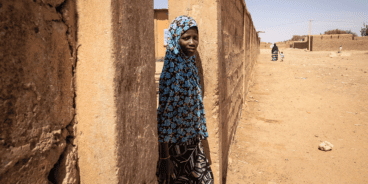
Atrocity Alert No. 68: Yemen, Central African Republic and Philippines
Atrocity Alert is a weekly publication by the Global Centre for the Responsibility to Protect highlighting situations where populations are at risk of, or are enduring, mass atrocity crimes.
Yemen
On 16 August a leaked draft of the UN Secretary-General’s annual report on children and armed conflict accused the Saudi Arabia-led military coalition in Yemen of committing grave human rights violations against children. The draft report, expected to be officially released later this month, documents the deaths of 502 children in Yemen during 2016, noting that the Saudi-led coalition was responsible for killing or injuring at least 683 children while the Houthis were responsible for 414 casualties.
Virginia Gamba, the Secretary-General’s Special Representative for Children and Armed Conflict, will reportedly recommend that the Saudi-led coalition be added to a list of countries and entities that kill and maim children. Under immense political pressure, the UN removed the Saudi-led coalition from the same list in 2016 despite their alleged responsibility for more than half of the 1,953 child casualties in Yemen during 2015.
Throughout the Yemen conflict all parties have used indiscriminate weapons in civilian populated areas and targeted civilian infrastructure. Earlier today, 23 August, at least 60 people were killed in an airstrike that targeted a hotel near Sana’a. At the upcoming session of the UN Human Rights Council in September, members should mandate the establishment of an international commission of inquiry to investigate mass atrocity crimes in Yemen. In keeping with the Arms Trade Treaty, states should also stop supplying weapons to parties to the Yemen conflict who consistently violate International Humanitarian and Human Rights Law and kill children.
Central African Republic
The situation in the Central African Republic (CAR) continues to deteriorate with reports of clashes in Bria, Zemio and elsewhere over the last week. The UN peacekeeping mission in CAR (MINUSCA) announced on 19 August that it was “taking appropriate measures to contain the violence” in Bria between presumed members of an anti-Balaka militia and the Front Populaire pour la Renaissance de la Centrafrique (FPRC), a faction of the ex-Séléka rebel alliance. According to the UN, at least 20 people were reportedly killed.
Fighting between anti-balaka and several ex-Séléka factions elsewhere in CAR, including Batangafo, Ngaoundaye, Kaga-Bandoro and Gambo, resulted in the deaths of at least 60 people between 29 July and 9 August. On 14 August six humanitarian organizations, including the International Rescue Committee and Norwegian Refugee Council, sent an open letter to UN Secretary-General António Guterres to request his office “take immediate action to prevent the country collapsing into another full-blown conflict.”
The UN Security Council should immediately authorize additional troops for MINUSCA, with the focus on rapidly enhancing the mission’s capacity to meaningfully protect vulnerable civilians.
Philippines
From 14 to 18 August over 90 people were killed in the Philippines in the bloodiest week so far in the government’s so-called “war on drugs.” Since President Rodrigo Duterte took office on 30 June 2016, over 12,500 people have reportedly been extrajudicially killed in a campaign targeting alleged dealers and users of illegal drugs.
Among those killed last week was Kian delos Santos, a 17-year-old student. CCTV footage and witness testimony contradicted the official police report and implicated officers in carrying out a summary execution.
The killing of delos Santos sparked domestic and international outcry. On 21 August President Duterte ordered the Philippines National Police to launch an investigation and said that if found guilty the police officers involved would “rot in jail.” The Philippines Commission on Human Rights and the national Senate have both announced plans to investigate the surge in extrajudicial killings, despite the Senate previously supporting the President’s “war on drugs.”
If the Philippine government continues with its deadly campaign of extrajudicial killings, and fails to hold perpetrators of possible crimes against humanity accountable, the international community should support calls for accountability under international law, potentially including via the International Criminal Court.
Related Publications


Atrocity Alert Special Issue: Children and Armed Conflict
